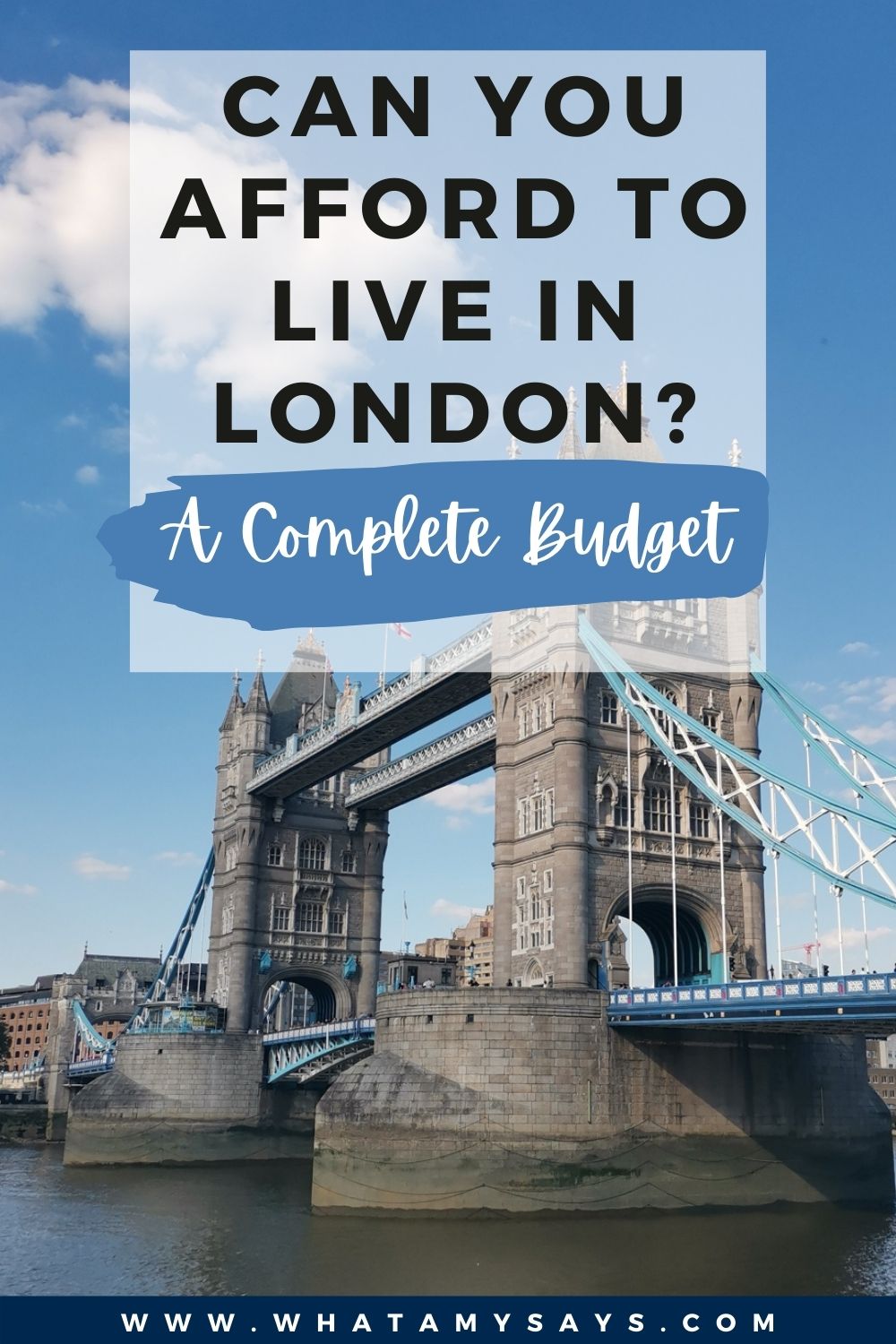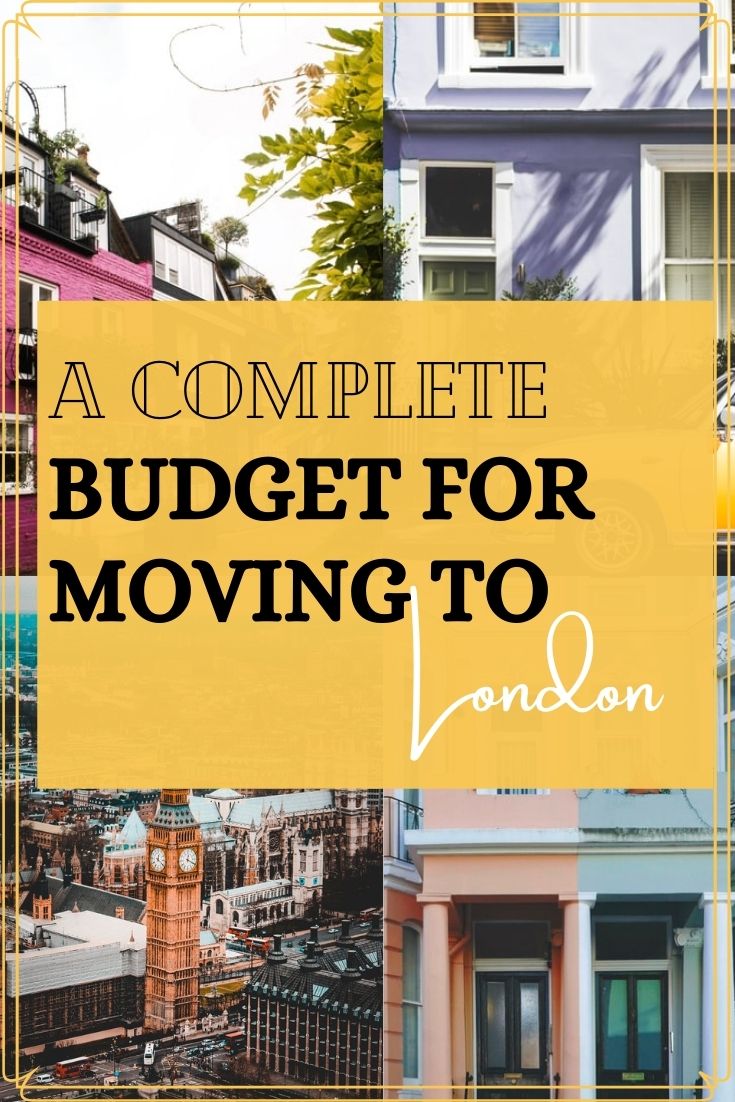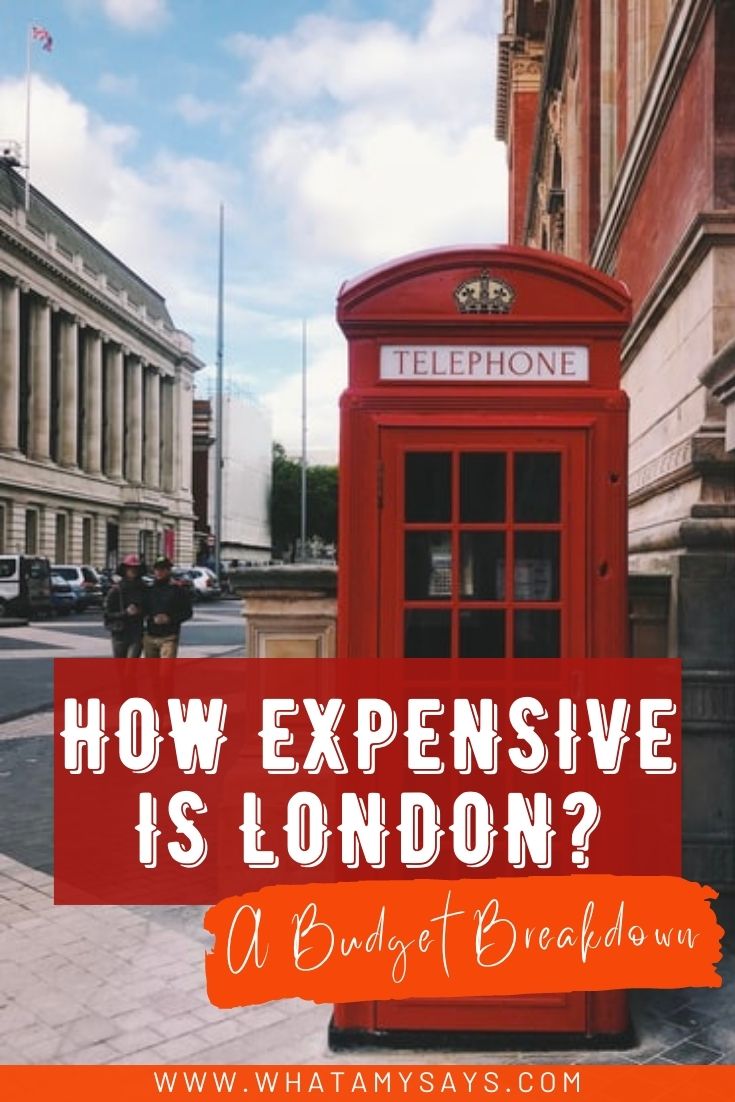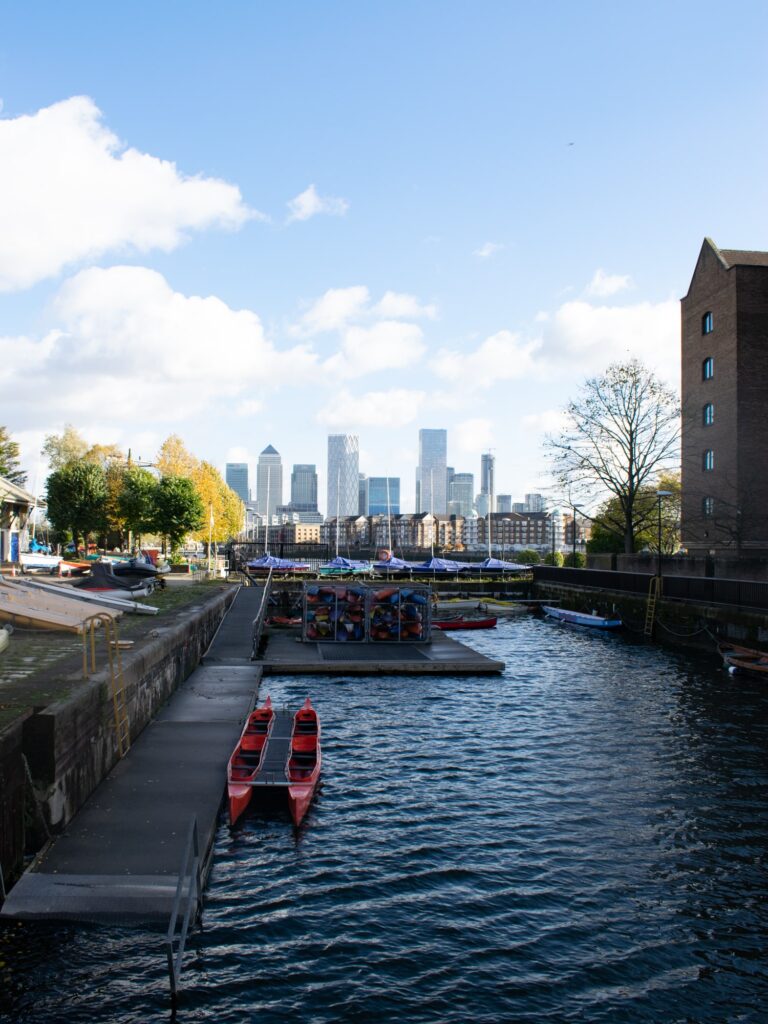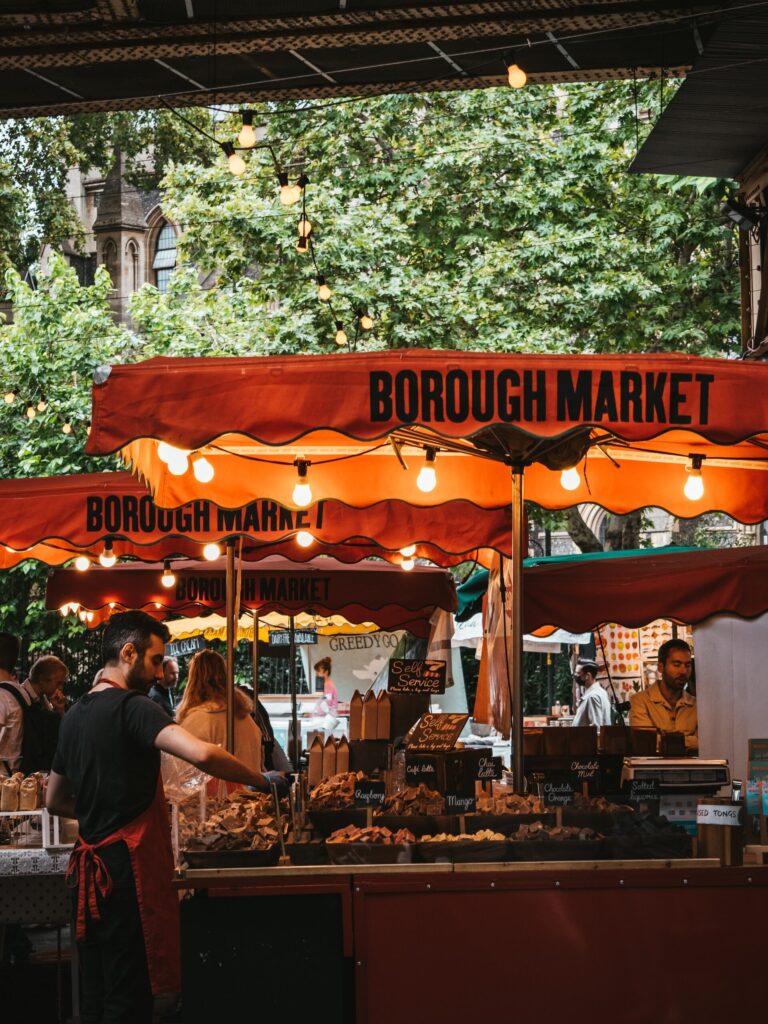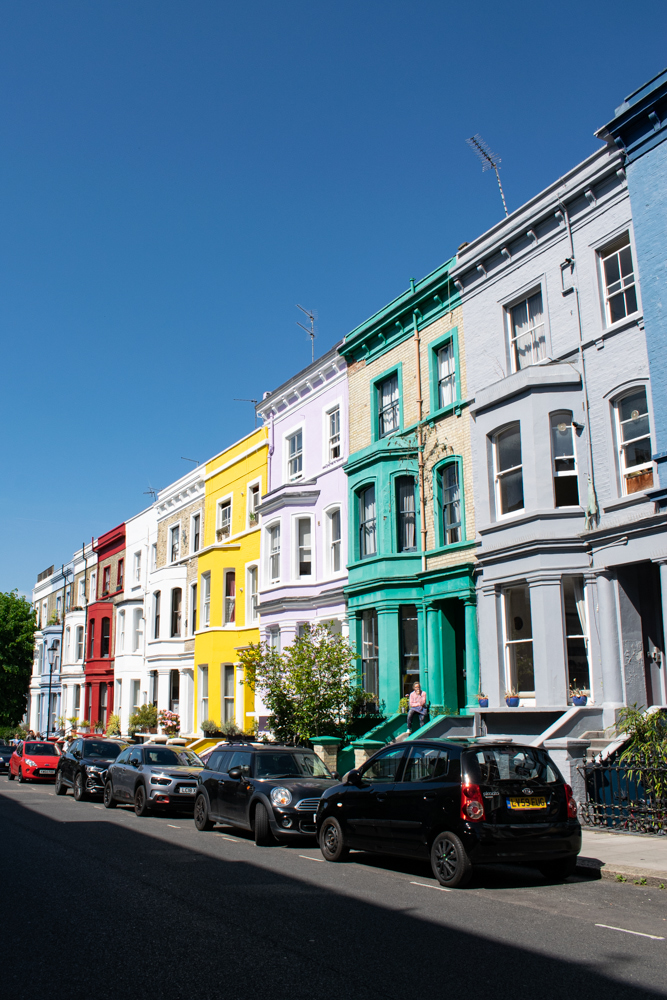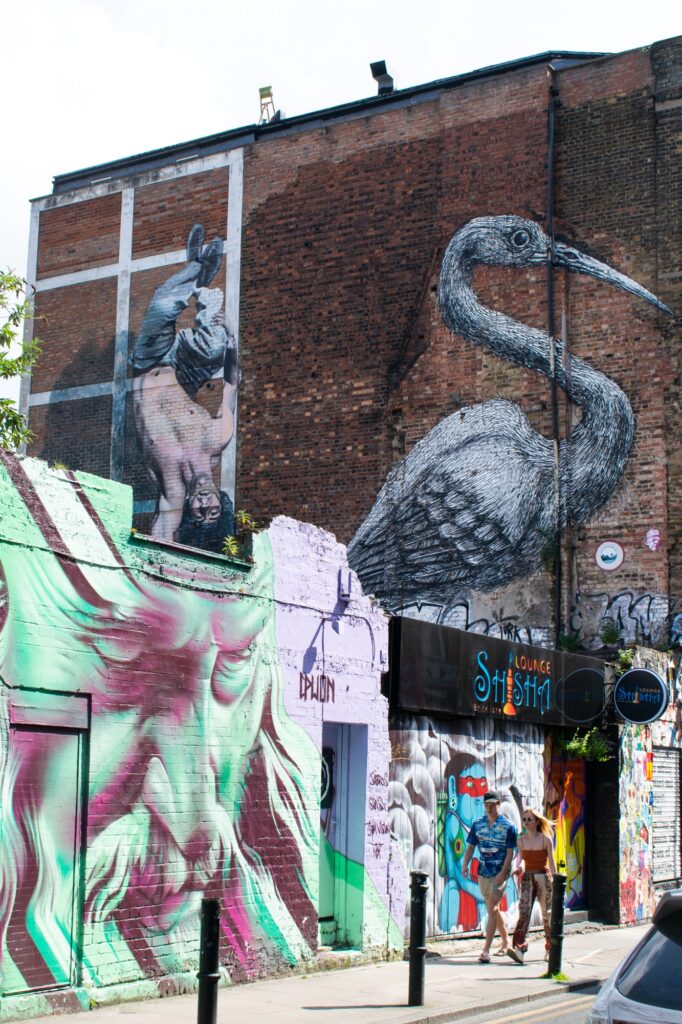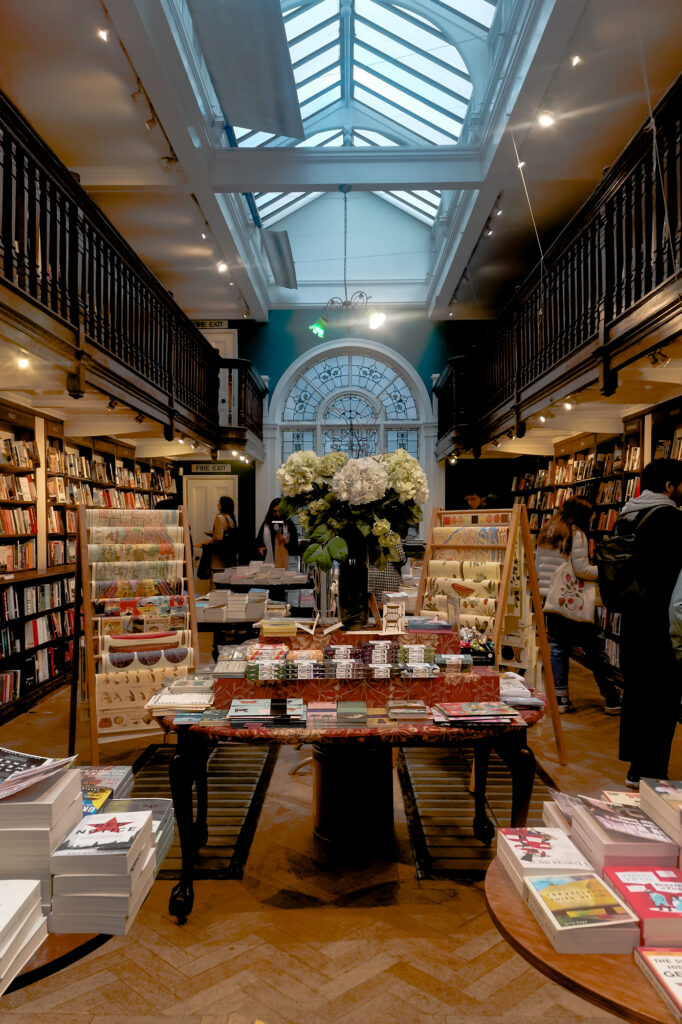Last Updated 11/03/2024 | 11th March, 2024
This post may contain affiliate links to things like tours, hotels, and products that I love. These links help me earn a small commission on all qualifying purchases at no additional charge to you. Thank you!
It’s no secret that London is one of the most expensive cities in the world. But it also has some of the best jobs, an unbeatable music scene, and incredible nightlife. The parks are amazing, and you will never be short of something to do.
So, if you’re planning on a big move, here’s a complete breakdown of the cost of living in London.
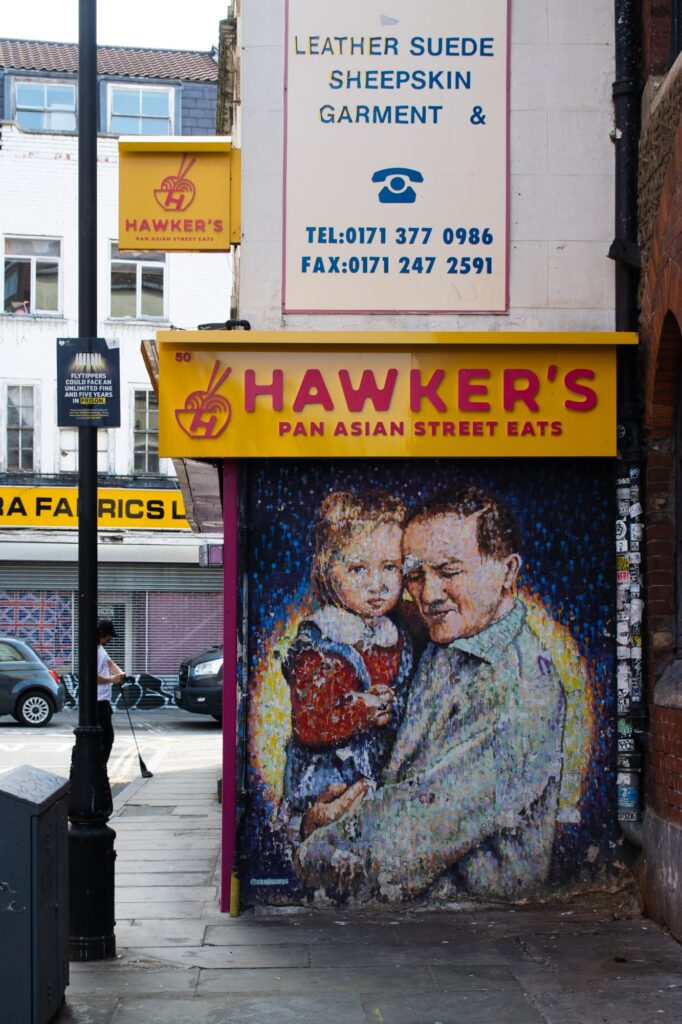
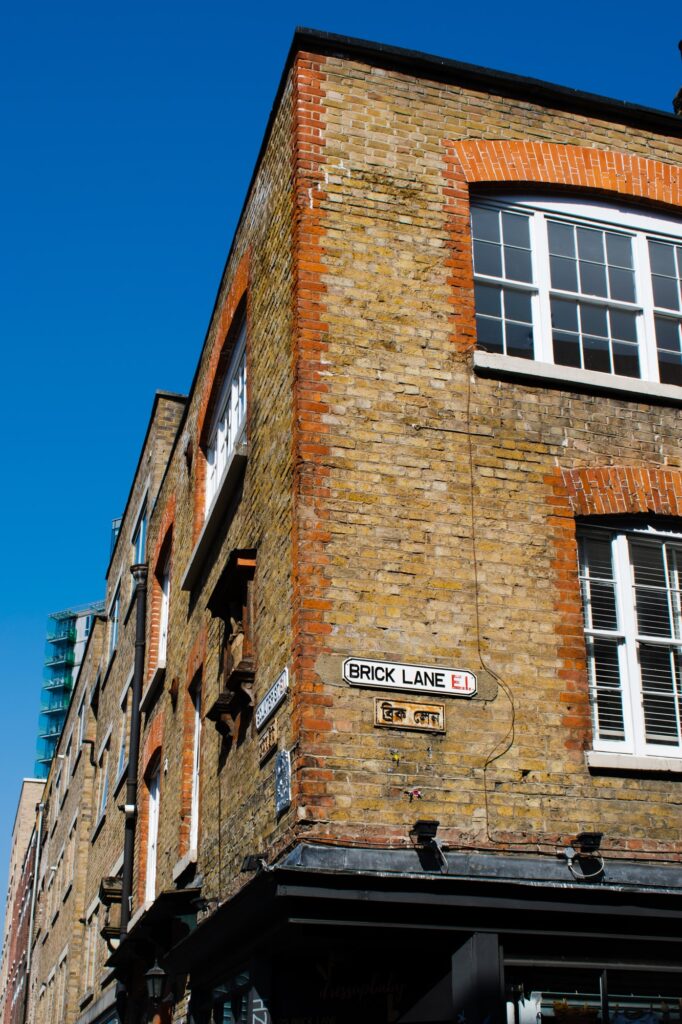
Finding Your Dream London Property
Factors That Will Affect Your London Rent
The Size of the Property
Of course, the size of the home will affect the property’s price. However, taking on a two-bedroom property with a friend/flatmate works out substantially cheaper than a one-bedroom property alone.
Which Zone You Are In
London geography runs in zones, with one being the most central and nine the furthest out. (However, most Brits wouldn’t class zones 8/9 as even being London anymore!). Zones 1 and 2 are the most expensive. Remember, though, moving further out of the city will require you to spend far more on transportation each month.
The Area
Aside from the zones, many sought-after London areas drive up rental costs. For example, in Notting Hill, with its picture-perfect pastel houses, renters can expect to pay more than £2000 per month for a studio flat.
Access to Outside Space
Space in London is scarce, and where developers can squeeze in an extra bedroom, they most certainly will. The luxury of a garden or even a small balcony comes at a premium.
Securing Your First London Rental – How It Works
The rental market in London is unlike any other that I have experienced. In the capital, it is entirely normal to ‘bid’ on a rental property, meaning flats often go for well above their asking price. Additionally, a ‘holding fee’ will usually be required to even place a bid. This holding fee is roughly the equivalent of a week’s rent, which can easily reach £500. This fee accounts for the estate agents’ negotiations with the landlord, preventing timewasters from taking up valuable resources.
Once your offer is accepted, the vetting process will begin. First and most obviously, estate agents will demand proof of income. For example, our estate agent required evidence of an annual salary amounting to more than 30 times the monthly rent. Meaning, if the property is £1500 per month, you will need to show a household income of £45,000.
Our estate agents then used a third-party provider to complete the vetting process. Although they required a LOT of information (references, ID, marriage certificates, employment contract and bank statements), the process was relatively stress-free. The whole thing was complete within three working days.
Once you’ve got the go-ahead, you will be expected to pay a deposit. The maximum legal deposit is the equivalent of 5 weeks’ rent (and at this point, you will receive your holding deposit back). However, please bear in mind that the property deposit and first month’s rent will be payable simultaneously, meaning your first month in London is expensive.
So, What Is the Average Rent in London?
It will come as no surprise that rents fluctuate massively across the city. Kensington and Chelsea are two of the most sought-after (and expensive) areas of the city – with an average rental price of £2062 per calendar month for a one-bedroom property.
On the other end of the scale, you have Bexley, with the average monthly rent for a one-bedroom flat being £854. However, Bexley is located in Zone 6, which can mean a massive daily commute for its residents.
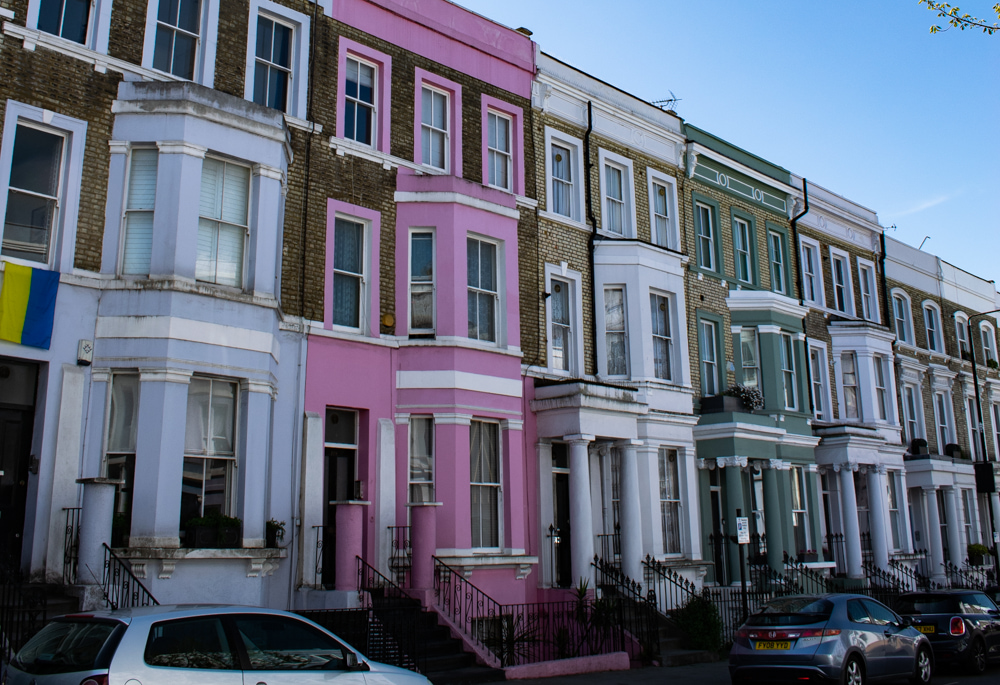
The Cost of Living in London – Utility Bills
A ‘utility bill’ is an umbrella term for any household bill outside of your rent. There are many of these to consider in the UK, meaning they become a significant portion of your monthly expenses.
Council Tax
Council tax will likely be your most expensive utility bill in London.
If you’re moving from elsewhere in the UK, you will be very familiar with this cost. If you’re moving from abroad, however, you might be shocked by the cost of this. Properties are assigned a ‘band’, with A being the cheapest, which varies depending on your local council. However, expect to pay upwards of £100 per month in council tax.
Electricity & Gas – London Cost of Living
The UK has seen a very sharp rise in electricity bills in the past six months. Again, this is the case across the country, not just in the capital. We currently pay £180 per month for a two-bedroom flat. This is extremely expensive, and partly caused by the fact we both predominantly work from home and there has been a steep rise in prices.
Water
Water rates are one of the least expensive utility bills. Expect to pay around £30 per month for a 1–2-bedroom flat. However, you will find that in many apartments, water rates are included in the rent.
TV License
‘I need a licence to watch TV?!’ In the UK, yes, you do. This will set you back £159 per year but can be split over 12 months and paid via direct debit. Even if you don’t have a TV but watch your programmes through a tablet or laptop, you will still need a license. However, you do not need a TV Licence if you only watch Netflix.
Internet
If you live in central London, the internet is quick, reliable and (by London standards) inexpensive. Our contract is £38 per month and is plenty fast enough for two people to work from home.
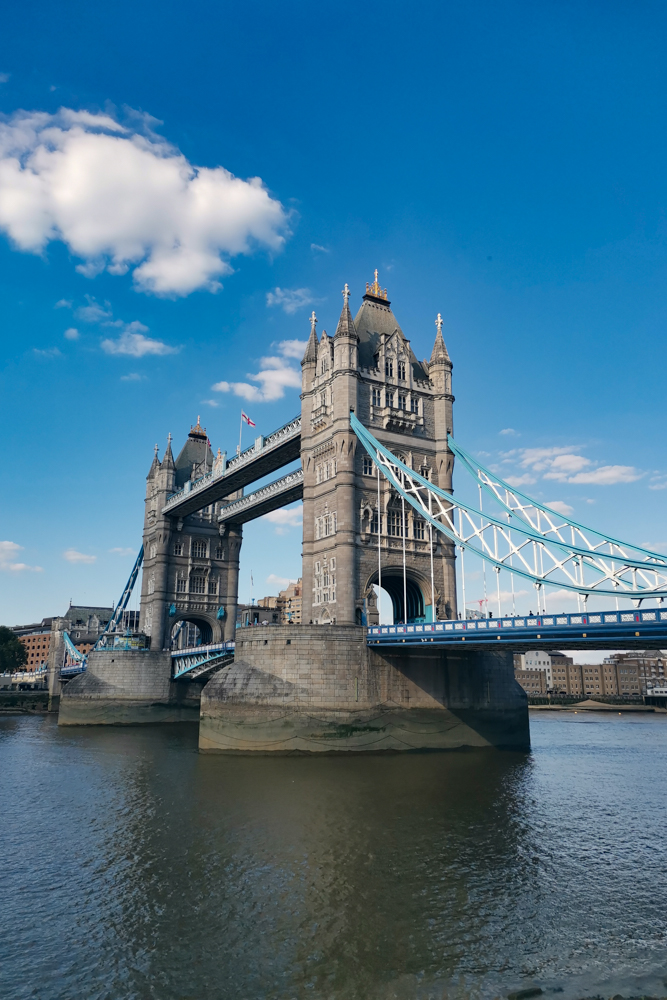
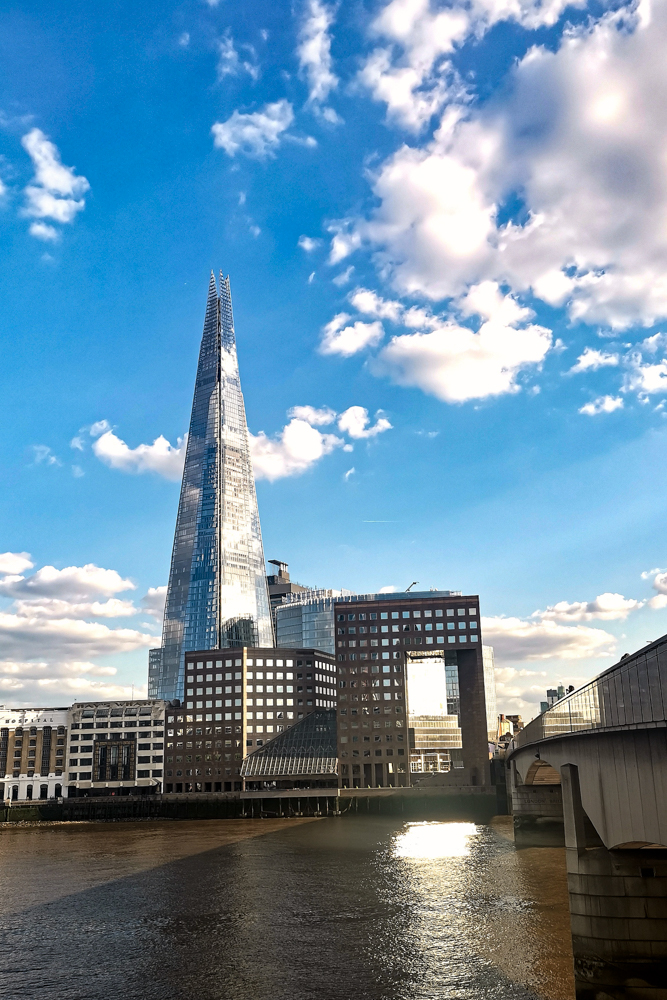
Living Expenses in London – Transport
Aside from your rent and utility bills, transport will likely be your most significant expense when living in London.
First, hardly anyone living in zone one or two has a car. It is costly, slow, and parking is a nightmare. I had a car for my first few months in London and found myself sitting in traffic for literally hours on end every journey and spending a fortune on petrol and parking.
For me, owning a car was a completely unnecessary cost of living in London. Public transport is much more cost and time-efficient. So, unless you require a car for work, I would not recommend driving in London.
A travel card for zones 1-6 will set you back £270 per month, which is obviously a substantial expense when calculating the cost of living in London. But this allows you unlimited access to any bus, tube, tram, or rail service. The tube services only close for a few hours each night, so realistically you will spend very little on travel outside of this. As expected, taxis and Ubers are expensive, so refrain from using them where possible.
Londoners are HUGE cyclists. It is a cheap, fun, and extremely quick way to explore the city. The insane traffic means that cyclists travel much faster than cars in the city, and there are excellent cycle routes that run throughout much of the capital. Be sure to download the Santander Cycles app to rent a bicycle for as little as £2. However, if you’re planning on purchasing your own bike, ensure you have somewhere safe to store, as there is a LOT of bicycle theft in the city.
Groceries – Calculating Your London Budget
Of course, groceries will vary hugely depending on your lifestyle and where you choose to shop. There are many small convenience shops in London, and using these regularly will lead you to spend far more on your weekly food bill. We are lucky to have a local Lidl, where around £80 will get us enough food to last two people a week.
Groceries are no more expensive than anywhere else in the UK, but access to giant supermarkets is much more limited, often leading to a higher weekly spend.
Socialising and Enjoyment
You’re not moving to London to stay at home and pay bills! You’ve moved to the most exciting city in the world, make sure you enjoy it. You will be delighted to learn there are tonnes of cheap and free things to do in London, perfect if you’re trying to reduce the cost of living in London.
There are an unbelievable number of restaurants in London, with budgets ranging drastically. If you’re looking for a cheap eat in central London, head to Chinatown where you can pick up a tasty meal for less than £10.
If you want to splash the cash, then head to West London and explore the swanky hangouts in Mayfair, where a main meal is likely to cost more than £30. On average, a main in a mid-range restaurant will cost around £15. Expect to pay around £6 for a pint of lager/cider and £8 for a glass of wine.
Enjoying a comedy gig is one of my favourite things to do in the city and is especially fun if you’re looking for a booze-free night. The comedy store is an excellent option with shows multiple times per week starting from £18. Tickets for the theatre can be picked up from around £20, and there are plenty of music gigs in East London’s hipster Shoreditch which start from approximately £10.
Looking for fun things to do in London? Check out my bumper guide of 102 epic things to do in the capital!
Cost of Living in London – FAQ
How Much Does It Cost to Live in London?
This is a very difficult question to answer. A two-bedroom flat in Zone Three will set you back around £2000 per month. Utility bills will then be around £400. Therefore, based on two people sharing and splitting costs equally, the cost of living in London would be £1200 per month. This, however, does not include food, transport, and socializing.
Is It Expensive to Live in London?
In short, yes! London is a very expensive city with some of the highest rents in the world. If you’re planning a move to the big smoke, make sure you thoroughly plan your budget beforehand.
Is There a Way to Live in London for Cheap?
Disappointingly, there isn’t really any way to live in London for cheap. Rent is your biggest expense, and so living in a Zone further from the centre, and sharing with housemates, is the best way to cut your costs whilst living in London.
What Are the Best Tips for Budgeting in London?
The best tips for budgeting in London include utilising public transport as much as possible, shopping at budget supermarkets and switching utility providers whenever better offers come along. You should also keep an eye out for cheap and free events in the city, which can allow you to have fun and explore whilst sticking to your budget.
MORE LONDON INSPIRATION:
Cheap (and Free!) Things to Do in London
The Best Pubs in Wapping, London
8 of the Best Day Trips From London
The Best Things to Do in Greenwich, London
The Ultimate Guide to Kew Gardens, London
14 of the Best Museums in London
16 of the Best Parks in London
PIN IT FOR LATER:
